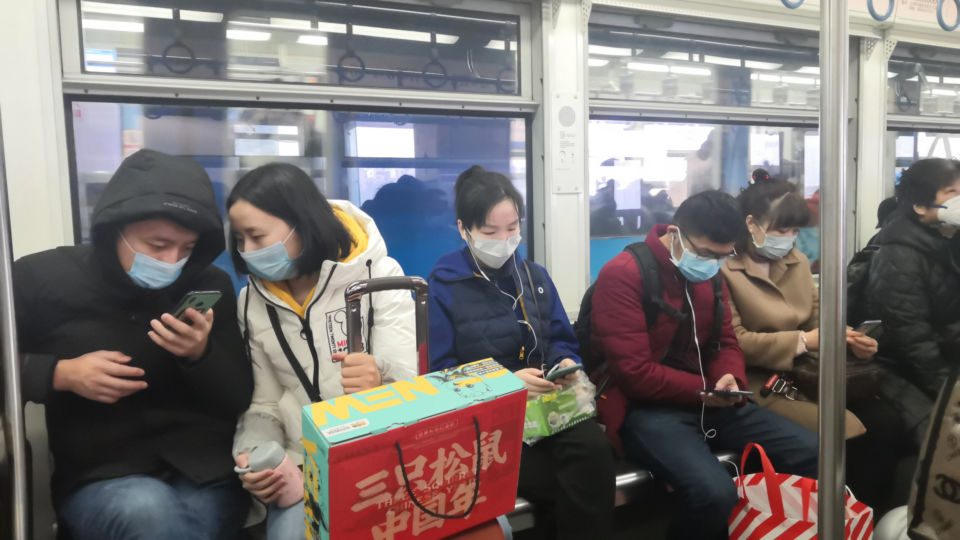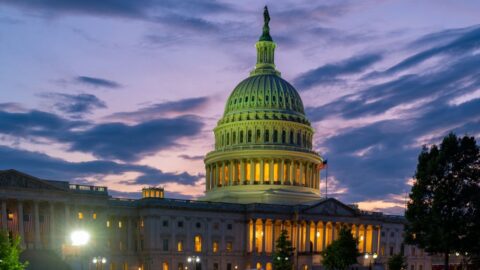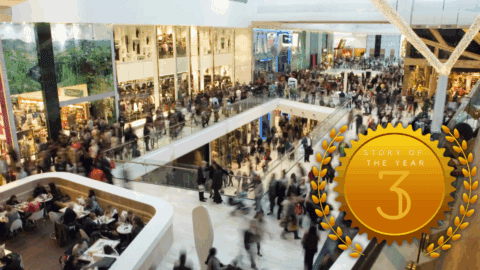The fast-moving coronavirus outbreak centered in China is making headlines around the world, but its impact on retail has been subdued thus far. However, some multinational U.S. retailers with a Chinese presence have temporarily closed their stores, and supply chain issues are likely to be felt as the disease spreads. Suppliers and retailers that rely on Chinese producers may need to explore alternate sources of supply, accelerating a process that began with rising U.S.-China trade tensions. However, because the virus’ spread has so far been primarily in China, the impact on consumer retail sales in the U.S. is likely to be limited.
As of Feb. 6, the coronavirus has 28,060 confirmed cases and was the cause of 564 deaths worldwide, according to data from theWorld Health Organization. Its presence in the U.S. was limited to 12 people, including 10 who contracted the disease in Wuhan, China, but the Centers for Disease Control (CDC) expects the number of domestic cases to rise.
Among the retailers that have temporarily closed some or all their stores in the country are:
- Nike has closed half of both its directly operated and franchised stores, with the remaining locations operating on reduced hours;
- Apple has closed all stores until February 9;
- Samsung also has closed all its stores until February 9;
- Ralph Lauren has closed half of its stores;
- Capri Holdings has closed about 150 stores; and
- Adidas has closed “a significant number” of directly owned stores in China, and many franchisees have also closed stores, according to Coresight Research.
Nike is one of the retailers with the most to lose from its China closures: the retailer’s estimated revenue exposure to China is 19%, while its growth exposure is 40%, according to Cowen & Company. Additionally, the retailer’s EBIT margin was 38.3% in China during fiscal 2019 versus 24.7% in the U.S., meaning any drop in China growth could significantly weigh on overall earnings.
The company confirmed that these factors will affect its performance, but also noted that momentum in the country remains strong.
“First and foremost, our thoughts are with the people affected and we remain focused on the health and safety of our teammates and partners,” said John Donahoe, President and CEO of Nike in a statement. “Despite this difficult situation, Nike’s long-term opportunity to continue to serve consumers in Greater China with inspiration and innovation remains exceedingly strong. At the same time, we continue to have extraordinary brand and business momentum in all other geographies.”
Luxury companies in general are at risk: the average brand has 14% sales exposure in China and 34% exposure in the Asia-Pacific region, according to Cowen & Company. However, retailers with smaller presences in the country are optimistic that they can pick up the pace after the threat passes.
“While the China opportunity is a massive growth opportunity for us, to some extent, it’s a blessing to be underpenetrated today because China represents less than 4% of the total company business,” said Patrice Louvet, President and CEO of Ralph Lauren during an earnings call. “Now we still are very bullish about our ability to win long-term in that region and very excited about what we can do there.”
Most Immediate Worry? The Supply Chain
The chances of the coronavirus directly affecting sales in the U.S. is low, but its spread could impact supply chains: approximately 20% of retail goods are sourced from China, according to Cowen & Company estimates. Travel bans already are disrupting transportation, which could in turn drive up costs.
“Transportation organizations like Maersk and UPS are already announcing cancelled flights and voyages due to concerns around the coronavirus, and major airlines such as American Airlines and United Airlines are cancelling commercial travel,” said Sue Welch, CEO of Bamboo Rose in an interview with Retail TouchPoints. “Continued cancellations and bans will drive up broader freight rates, causing retailers and product companies to ultimately extend that cost to the consumer — causing potential friction against the bottom line.”
Retailers will need to pay attention to their entire supply chain and be prepared to find alternative suppliers for goods that come from China if the virus continues spreading. Products made in or shipped from China could end up in short supply, and unprepared retailers may find their customers researching other options — or even other retailers.
“The coronavirus crisis has drastically increased retailer concern around maintaining inventory levels as some of their partner operations in China shut down,” said Welch. “Retailers now have to account for production delays of four to six weeks longer than expected, and even then they will face challenges securing freight forwarding and carrier arrangements. As the crisis continues, retailers must look to acquire other factories and suppliers in different geographic locations to avoid any interruption in business.”
Reduced Tourism Will Likely Have A Negligible Impact On U.S. Retail
The direct impact of the coronavirus on U.S. retail is currently very low, according to Sucharita Kodali, VP and Principal Analyst at Forrester Research. One of the primary challenges going forward will be a reduction in Chinese tourist spending: an estimated 3 million tourists from China visited the U.S. in 2018, spending an average of $6,500 during their visit — 50% more than the average tourist.
However, while Kodali believes spending may drop in the next quarter, she noted that Chinese tourism in the U.S. was already on the decline. This is likely due to unrelated factors, like the slowing economy in China and a travel advisory issued in response to the U.S.-China trade war.
Certain U.S. retailers are still more likely to suffer due to reduced tourism than others. L’Oréal’s sales are taking a hit due to declining sales at Asian airports, though the brand expects the effects to be temporary.
U.S. shopper habits haven’t been affected thus far. Domestic cases haven’t appeared in a significant number of people, and it is far too early to speculate what impact a larger outbreak would have on the domestic retail industry.
“It depends on what happens,” said Kodali in an interview with Retail TouchPoints. “There are too many unknowns now. If it comes to the U.S. in a significant way, it will be a huge problem, but for more than just the retail industry. It will affect the entire economy.”













